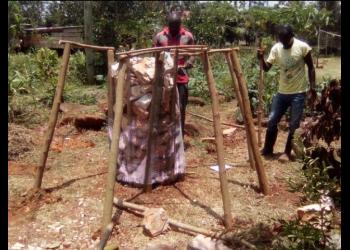Food security: in search of long-term solutions
Exacerbated by the COVID-19 pandemic, the issue of food insecurity is being treated as a matter of urgency by actors and organisations at every level. From the local level to the international stage, many questions are arising in efforts to create more resilient food and international trade systems that meet the needs of all populations. The urgency precipitated by this long-standing issue calls for a reexamination of its various facets at their deepest level, putting long-term concerns over short-term visions in decision-making.
In light of the upcoming EU-Africa Summit in October 2020, the Addis Ababa and Brussels Offices of the Baha’i International Community (BIC) recently hosted joint conversations between African and European actors, in which various aspects of the problem of food insecurity were explored. A series of open discussions have taken place with participants from both continents, including a gathering of African and European faith-based actors and representatives on 8 July, and a meeting of scholars and practitioners from the fields of economics, development, food security and agriculture on 16 July.
Participants in these discussions highlighted food insecurity as a pressing global concern. First, the need to strengthen local food systems was noted as salient. The ability to respond to future shocks depends on the resilience and self-sufficiency of local markets, accompanied by a just international trading system. Seeing rural populations as endowed with capacity to make informed technological choices, and to generate, apply and diffuse locally appropriate knowledge about sustainable food production are key elements in reinforcing local food production.
Second, the issue of food insecurity is not a stand-alone issue. Conflicts, drastic changes to the climate and gaps in gender equality can all contribute to food insecurity, both at the level of production and access. Thus, it is indispensable to acknowledge the interconnectedness of these various policy issues if viable solutions to all are to be found.
Moreover, tackling such complexities requires coherent internal and external policies. Policies in one area often have impact beyond their intended geographical or thematic scope. The interconnectedness of our world requires that policies take account of the fact that the well-being of one region can no longer be separated from the well-being of another. This understanding calls for policy makers in one place to consider the impact of their decisions and actions not only on their own surroundings, but on the whole of humanity.
Another consideration to emerge in these discussions is that economic policies centered purely around growth often lead to trade and development policies that are of little benefit to all segments of society in the long run. Thought needs to be given, then, to a new economic approach that can harmonize economic, social and environmental considerations in a coherent way. This means that the issue of food security does not only call for a technical policy response, but requires a broader and deeper re-thinking of the principles on which the global economy and international order are based.
The BIC Brussels Office looks forward to advancing this preliminary mapping of the issue of food insecurity, and focusing on some of the above areas in collaboration with others.
